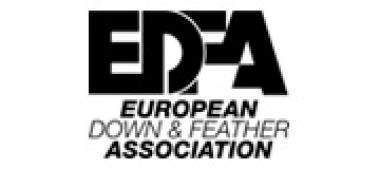German bed feather industry defends itself against the condemnation of the sector
Statement on the publications of Stiftung Warentest
After Stiftung Warentest's general critique of the branches hit the manufacturers of electronic bicycles as well as the toy industry, the German bed feather industry lately was hit by its critique. VDFI, Verband der Deutschen Daunen und Federnindustrie, names its main niggles concerning the approach of Stiftung Warentest: self-defined test methods in the subject of quality tests; a testing procedure which cannot be repeated in a reliable way; the expertise of a questionable investigative journalist and a wishful catalogue of criteria of the editorial department of Stiftung Warentest's journal 'test' involving animal protection directions, which serve as an open goal for the campaigns of several interest groups.
During the latest product test, Stiftung Warentest assessed ten down blankets and - interestingly enough - three blankets filled with artificial fibres under the title "Dreaming under down". On the following pages, Stiftung Warentest added a so called CSR test to do more in testing the entrepreneurial social responsibility by self-defined criteria. "End of the dream" - Stiftung Warentest assumed its own point of view with these words already in the opening of the article: "Animal protectors reproach the bed feather industry for animal cruelty. The providers are not able to refute the allegations; no one gives evidence on the origin of his down." Stiftung Warentest as a matter of priority refers to an independent journalist who worked for the same animal protection organization for a vast time, on which was reported in test's December issue: "Not at least a half of the income flowed into projects and campaigns as reported by the annual report of 2012…".
The reality of the bedfeather industry looks different: "We do not only regularly work together with NGOs like Deutscher Tierschutzbund and engage in an earning process of down according the directions of animal protection, but we give evidence on the origin of the filling material harvested of slaughtered ducks and geese. We can retrace this chain from the finished product back to the place of the harvesting of feathers, which means the slaughterhouse. This is valid for all associated companies - unimportant in that case if they receive their product immediately of the slaughterhouse or if they receive it of the wholesale trade", accentuates chairman Friedrich Verse. "The label Traumpass gives evidence to traders as well as to consumers that in the filling of a product of such high quality, the harvesting of the living animal can be excluded", adds business manager Dr. Juliane Hedderich.
Stiftung Warentest demanded a tracebabilty of feathers and down back to the farm. The branch attached the condition of the assurance of confidential treatment to Stiftung Warentest's demand of a disclosure of that part of the supply chain for which the bedfeather industry is responsible. This part includes the traceability of the product back to wholesale trade and, from thereon, back to the slaughterhouse. The branch did not receive this assurance. The branch association has received statements concerning the refusal by the company.
A relevant and realistic discussion of the subject is made nearly impossible to the branch by such a procedure. "In addition, assessments and procedures are overtaken without any analysis in reports and as well in the public opinion due to Stiftung Warentest's high popularity and political support", as the chairman says in his summary.
Stiftung Warentest shall compare the use, the utility value and the environmental tolerance of the products in an objectivizational way. It shall inform the consumer on the results of these comparisons. But, where does information end and where does manipulation set in? As an independent foundation of civil laws, Stiftung Warentest pretends to be free regarding the planning of the tests and the development and the application of the test criteria. But: as soon as this leads to a kind of publications which some interest groups regard as open goals for their own campaigns, not only the involved industry, but also the public as a whole has to be attentive. It's about time to question the statements and testing procedures of Stiftung Warentest in detail.
Source:
Verband der Deutschen Daunen- und Federnindustrie e.V.
Thomas-Mann-Str. 9
55122 Mainz




